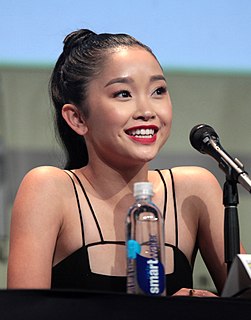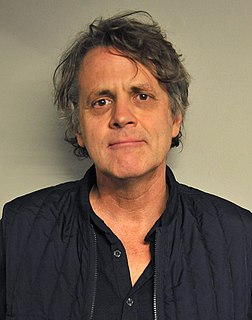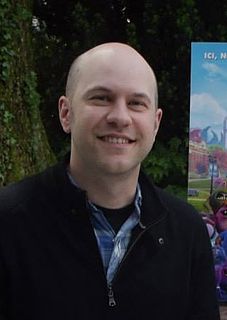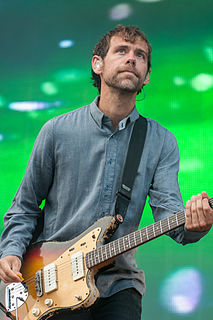A Quote by Gene Luen Yang
One of the ways [racism] pops up is when they turn a comic into a live-action movie and there's this temptation to make Asian characters white.
Quote Topics
Related Quotes
I felt pretty good growing up. I didn't feel a lot of prejudice or racism. But I do remember, if there was going to be a movie or a television show with Asian characters, I would go out of my way to avoid them, because they portrayed all Asians as either ridiculously good or ridiculously bad; you know, the whole Charlie Chan-Fu Manchu thing.
I felt pretty good growing up. I didnt feel a lot of prejudice or racism. But I do remember, if there was going to be a movie or a television show with Asian characters, I would go out of my way to avoid them, because they portrayed all Asians as either ridiculously good or ridiculously bad; you know, the whole Charlie Chan-Fu Manchu thing.
I think making a great action movie is one of the hardest cinematic endeavors. By definition, smart characters avoid action. Smart people don't go down dark alleys, but if you're making an action movie and you want to have an action sequence, somehow you have to get that character into that dangerous situation.
There's a misconception that I can't relate to the quote-unquote 'Asian-American experience' because I didn't grow up with an Asian mom and dad. And that's just not true. I am Asian American, and so playing a girl who is half Korean, half white, but her white dad tried really hard to connect with her mom's heritage - that's very familiar to me.
I see racism as institutional: the rules are different for me because I'm black. It's not necessarily someone's specific attitude against me; it's just the fact that I, as a black man, have a much harder time making an art-house movie and getting it released than a white person does about their very white point of view. That's racism.
I'm surrounded by a lot of live-action movie professionals, and I'm just taking their lead, as far as what to schedule to do next. I'm guessing the challenge is going to be not having two characters together, and shooting the live-action without having the animation. In animation, you get to get in between every frame and you work it all out together.
Another response to racism has been the establishment of unlearning racism workshops, which are often led by white women. These workshops are important, yet they tend to focus primarily on cathartic individual psychological personal prejudice without stressing the need for corresponding change in political commitment and action. A woman who attends an unlearning racism workshop and learns to acknowledge that she is racist is no less a threat than one who does not. Acknowledgment of racism is significant when it leads to transformation.






































